Month: January 2025
Quiport and Junior Achievement promote youth entrepreneurship in local communities with the program La Compañía
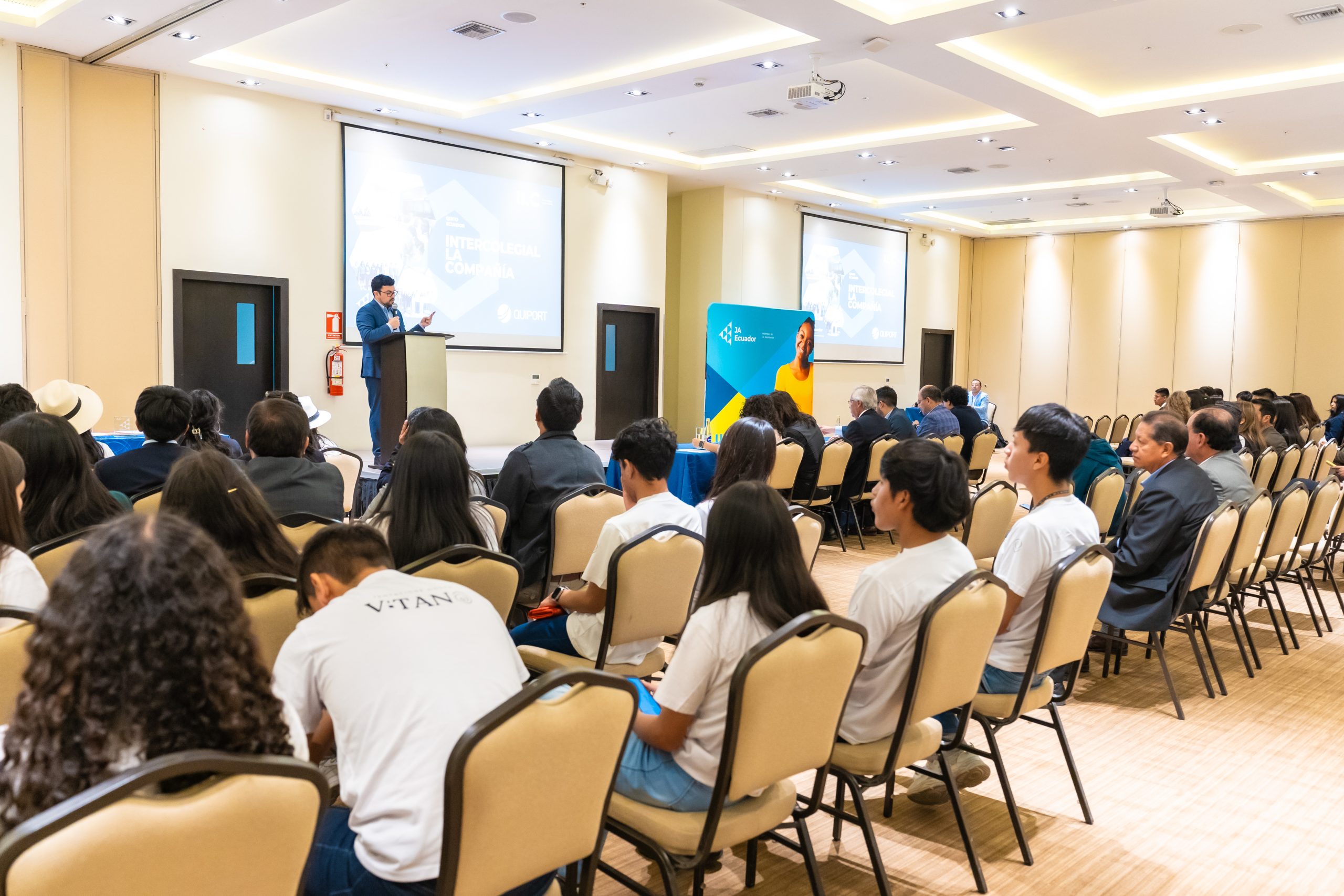
With the purpose of promoting the entrepreneurial spirit among young people in communities near the Mariscal Sucre International Airport, Quiport, in partnership with the Junior Achievement Foundation, organized the second edition of the program La Compañía. This initiative allowed students from schools in Pifo, Tababela, Yaruquí, Checa, Ascázubi and Puembo to learn about entrepreneurship and carry out real business projects.
Over the course of four months, 66 students from six schools worked in teams to create and manage their own companies. They were guided by 19 Quiport volunteers, who gave workshops on business management in human talent, finance, customer service, marketing, business plans, sales and sustainability. The participants demonstrated their ability to operate in a competitive environment, from the conceptualization of their ideas to the commercialization of their products.
The program culminated with an event at the Wyndham Quito Airport Hotel, where the students presented their companies and strategies to Quiport authorities. The awards ceremony was later held, in which their efforts were recognized in different categories:
Company of the year: Dulzura Manabita, from Tres de Diciembre Educational Unit in Checa, focused on the marketing of traditional sweets from Manabí. As winners, its members received scholarships at the ISMAC Technological University Institute and a consumption card.
Second place: Manguey JA, from Yaruquí Technical Educational Unit, whose members also received scholarships at the ISMAC Technological University Institute and a lower-value consumption card.
Special mentions:
Innovation: Quilla Nina from Ascázubi Technical School.
Best graphic image: Dulzura Manabita from Tres de Diciembre Educational Unit in Checa.
Best financial management: Manguey JA from Yaruquí Technical Educational Unit.
Best Sales Strategy: Tropical Grinch from Colegio Salazar Gómez de Pifo.
Students expressed their enthusiasm and gratitude for the opportunity to apply their knowledge in real projects, highlighting this experience as an important step towards the world of entrepreneurship.
Ramón Miró, president and CEO of Quiport, highlighted the impact of these initiatives on youth and community development: “We are proud of the students’ commitment and creativity. It is essential to continue promoting spaces where young people can develop their entrepreneurial skills and contribute to the growth of their communities.” He also thanked Junior Achievement and the Quiport team that participated as volunteers in this program.
New biometric gates at Quito airport that speed up departures from the country and improve the passenger experience
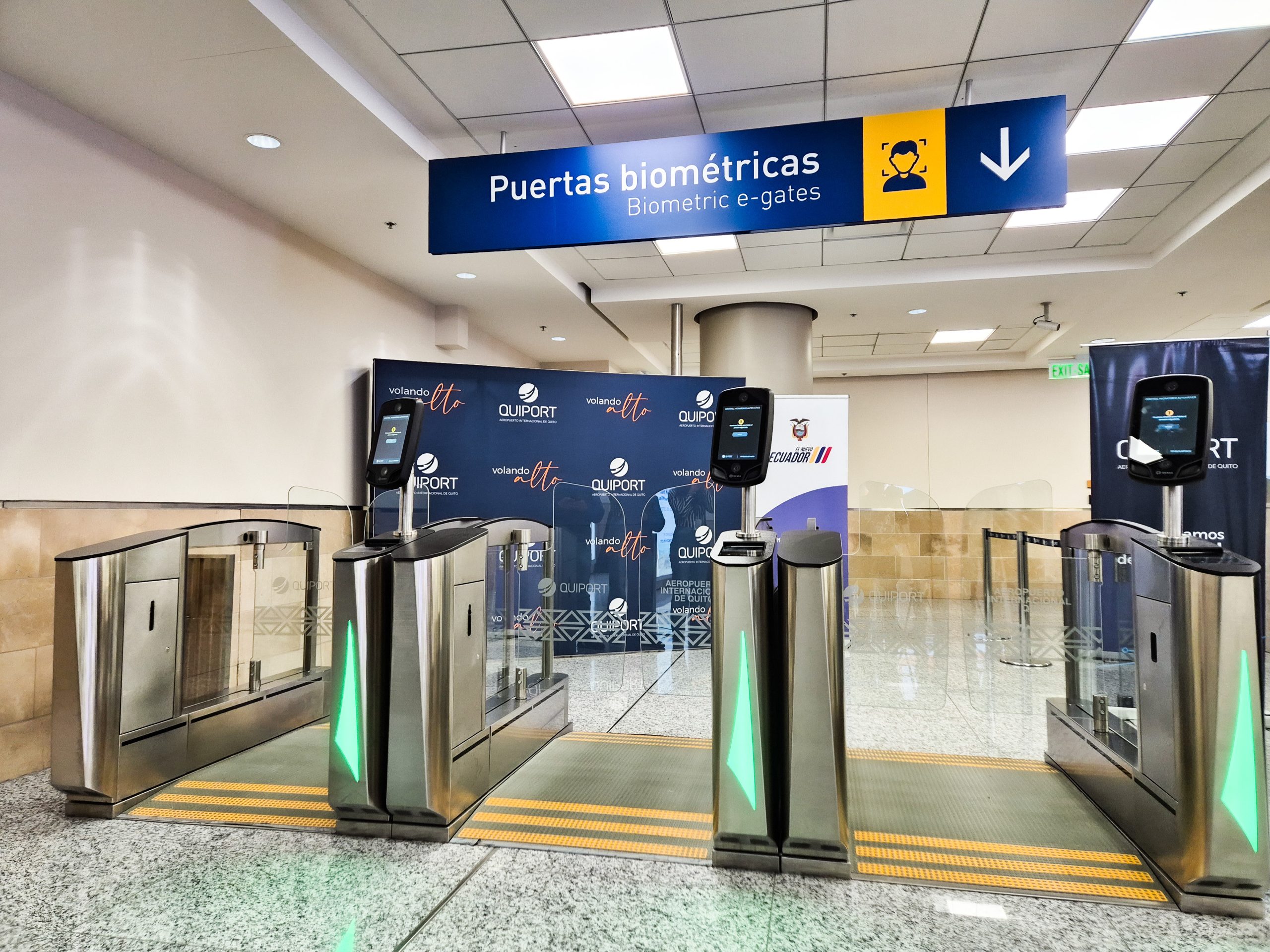
With the aim of optimizing the passenger experience and speed up immigration processes, Corporación Quiport, in collaboration with the Ministry of the Interior, has implemented a biometric gate system in the immigration area for international flights. This investment by Quiport will allow Ecuadorian passengers to independently and efficiently register their travel documents, significantly reducing waiting times.
The new biometric gates are available for Ecuadorian citizens of legal age who have a biometric or electronic ID or passport. The process is simple: the passenger only has topress the Start button on the touch screen, scan the QR code on their boarding pass, select their identification document (ID or passport) and scan the document as indicated by the system so that it can identify the MRZ code. Then, the system takes a photo of the face to perform facial recognition, and if everything is correct, the doors open automatically. If any irregularity is detected, the system redirects the passenger to a counter, where immigration personnel will assist them.
In terms of efficiency, this system has managed to reduce processing times: the entire process at the new gates takes between 30 seconds and 1 minute, which represents a notable improvement compared to the 3 minutes that the conventional process took at a counter with an immigration agent.
This system will initially be available for flights with final destinations to countries in South America and Panama. To travel to Venezuela, the system only works with a passport and in the case of French Guiana it is necessary to do the immigration process at a counter.
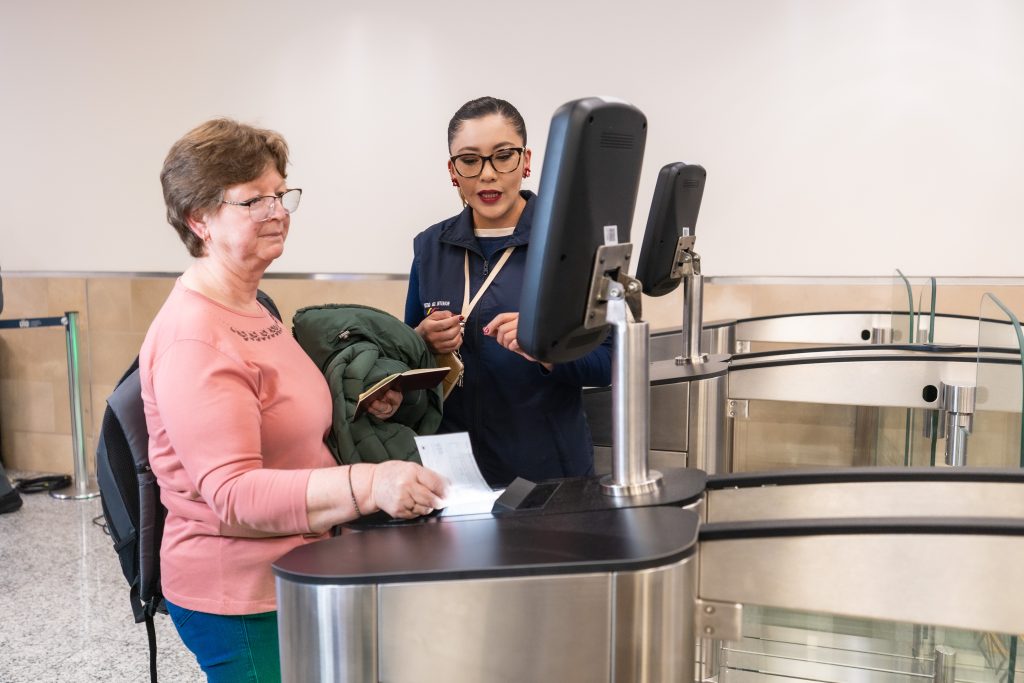
Ramón Miró, president and CEO of Quiport, highlighted the collaboration with the Ministry of the Interior to implement biometric gates in immigration, a significant advance in improving the experience and reducing times for passengers. “Since 2023, the airport is a pioneer in Ecuador in using biometrics in immigration, with the implementation of biometric gates for arrivals and, recently, for departures.” Miró thanked everyone involved in this project and highlighted Quiport’s ongoing commitment to innovation in 2025.
For her part, Gabriela Pogo, Undersecretary of Migration, said that: “these actions demonstrate the commitment of the Ministry of the Interior to innovation, continuous improvement and promoting security in the migration process.”
The installation of biometric doors is part of a broad technological transformation project for the Quito airport, with the aim of transforming it into a benchmark for efficiency and technology. Several automatic doors with similar characteristics have already been implemented in other areas of the airport in previous years. Find out the details here: https://www.aeropuertoquito.aero/tag/biometrico/
Quiport receives two awards for its commitment to sustainability
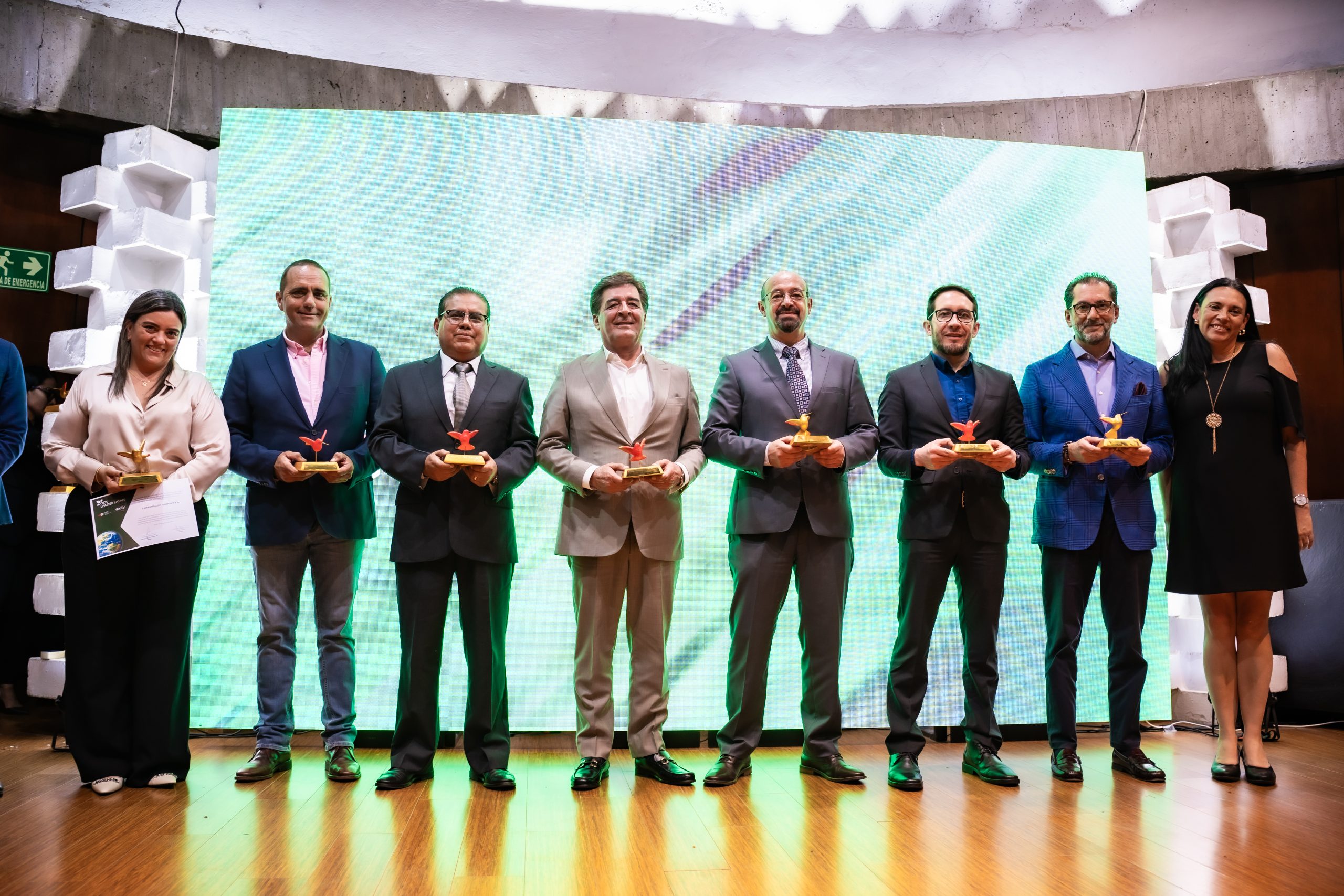
Quiport has been distinguished with two important awards that highlight its commitment to sustainability and responsible development.
The Quito Chamber of Commerce and Oxify by Kruger awarded Quiport the SDG Leader Latam award, a recognition endorsed by prestigious international organizations such as EBC International, Basura Cero Global and iLab. This award highlights companies that implement concrete actions to meet the Sustainable Development Goals (SDG) and actively contribute to sustainable development in Ecuador and the region.
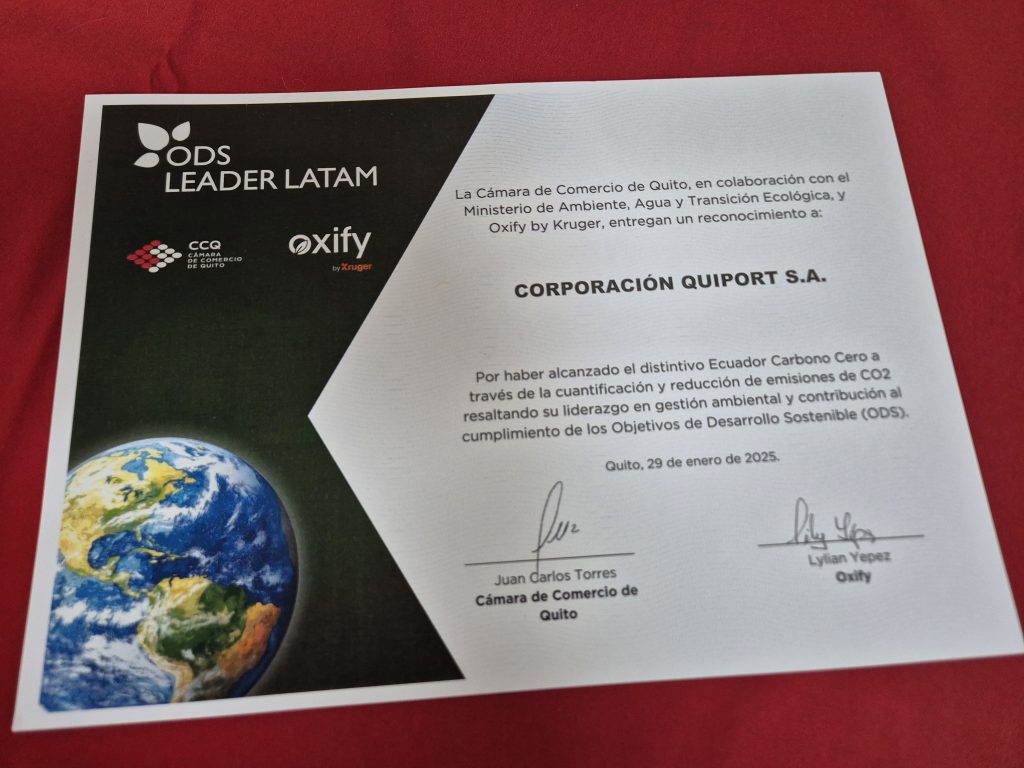
In addition, in this same space, Quiport received the Ecuador Carbono Cero award, awarded by the Ministry of the Environment and the Quito Chamber of Commerce. This distinction is the result of its constant effort to quantify and reduce CO₂ emissions.
In this regard, Ramón Miró, president and CEO of Quiport, highlighted: “These recognitions motivate us to continue working on responsible and sustainable actions. They are a reflection of the efforts of our entire team and commit us to continue with our conviction that development and sustainability are two inseparable concepts, since there cannot be full development without it being sustainable.”
Valentine’s Day 2025 cargo season has begun at Mariscal Sucre Airport
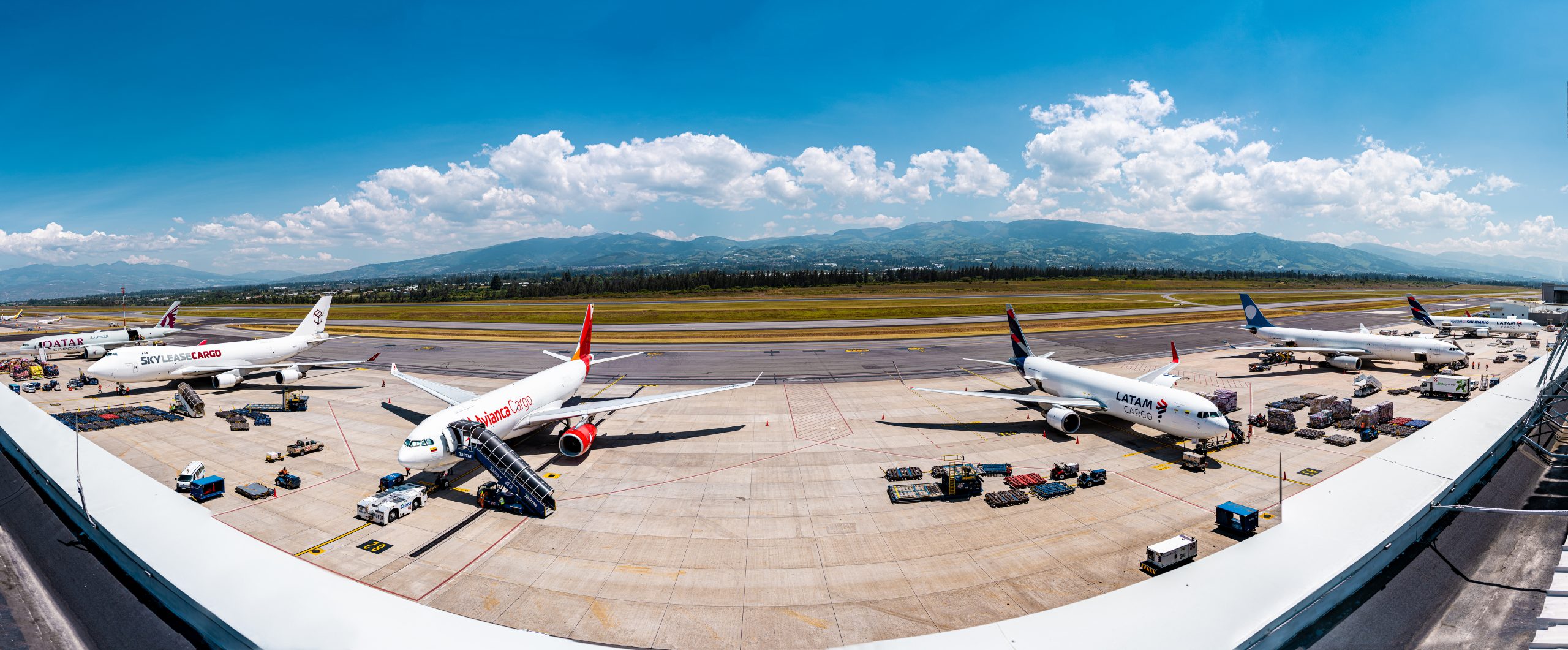
• The season runs from January 18 to February 8.
• Volume growth is projected to be between 3% and 5%.
• 15 cargo airlines operate in the cargo area, taking Ecuadorian flowers to destinations around the world, mainly the United States and Europe.
The peak flower export season for Valentine’s Day 2025 at Quito Airport began this Saturday, January 18, and will run until Saturday, February 8. According to the forecasts that Quiport has made based on information obtained from the palletizers that process the cargo, the volume of flowers exported in the 2025 season will grow in a range of 3% to 5%.
In 2024, the total volume of flowers exported was 26,466 metric tons, setting an absolute record for Valentine’s Day exports from Quito Airport. In terms of flights, 493 flights are expected to be dispatched, operated by 15 cargo airlines. The main destinations for Ecuadorian flowers are the United States and Europe.
“The growth of air cargo has been a constant at the Quito airport, exceeding the volumes of processed cargo year after year. In the case of flower exports, the forecasts for 2025 are encouraging thanks to the excellent positioning of Ecuadorian flowers in international markets. As Quiport, our responsibility as the Quito Airport concessionaire is to guarantee that the entire operation works properly so that the flowers are shipped on time, preserving their quality,” said Ramón Miró, president and CEO of Corporación Quiport.
The Mariscal Sucre International Airport has an international cargo terminal with 13 thousand square meters of usable area, in which four cargo palletizing companies operate, and the cargo platform that can accommodate up to six high-capacity cargo aircraft simultaneously (four E code -for example Boeing 777-200- and two F code -for example Boeing 747-800-), making it the main cargo airport in the country.
Infrastructure and operational efficiency have allowed Quito airport to reach 5th place in the ‘TOP 20 air cargo in the region’ ranking, prepared in 2024 by the International Council of Airports of Latin America and the Caribbean (ACI-LAC).
